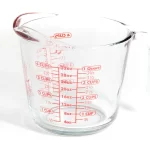What is Creatine?
Creatine is a naturally occurring compound found primarily in the skeletal muscles of vertebrates, including humans. It is synthesized in the liver, pancreas, and kidneys from the amino acids glycine, arginine, and methionine. Creatine plays a crucial role in the body’s energy production system, particularly during high-intensity exercise.
Creatine and Energy Production
Creatine is involved in the production of adenosine triphosphate (ATP), the primary energy currency of cells. During high-intensity exercise, ATP is rapidly broken down to provide energy for muscle contraction. Creatine helps replenish ATP levels by accepting a phosphate group, forming phosphocreatine (PCr). PCr can then donate its phosphate group back to adenosine diphosphate (ADP) to rapidly regenerate ATP, allowing for continued muscle contraction.
Benefits of Creatine Supplementation
Creatine supplementation has been extensively studied and has been shown to provide several potential benefits for athletes and active individuals:
- Improved exercise performance: Creatine has been shown to enhance high-intensity exercise capacity, allowing for increased work output and improved performance in activities such as sprinting, weightlifting, and high-intensity interval training.
- Increased muscle mass: Creatine supplementation has been associated with increased lean muscle mass, particularly when combined with resistance training. This effect is likely due to the ability of creatine to increase water content in muscle cells, as well as its potential to stimulate muscle protein synthesis.
- Enhanced recovery: Creatine may help reduce muscle fatigue and enhance recovery between high-intensity exercise bouts, potentially allowing for more frequent and intense training sessions.
- Neuroprotective effects: Some research suggests that creatine may have neuroprotective properties and may be beneficial for certain neurological conditions, such as Parkinson’s disease and Huntington’s disease.
When to Take Creatine
The optimal timing for taking creatine is a topic of ongoing research and debate. Here are some of the most common recommendations and considerations:
Loading Phase
Some experts recommend a loading phase when starting creatine supplementation. This involves taking a higher dose (20-25 grams per day) for 5-7 days, divided into 4-5 equal doses throughout the day. The purpose of the loading phase is to rapidly saturate muscle creatine stores, potentially leading to faster performance and muscle gains.
Maintenance Phase
After the loading phase, a maintenance dose of 3-5 grams per day is typically recommended to maintain elevated muscle creatine levels. This dose can be taken at any time of day, with or without food.
Timing Around Exercise
Some studies suggest that taking creatine around the time of exercise may be beneficial for maximizing its effects on performance and muscle growth. Here are a few considerations:
- Pre-workout: Taking creatine before exercise may help provide a readily available source of PCr for energy production during the workout.
- Post-workout: Taking creatine after exercise may help replenish depleted muscle creatine stores and support muscle recovery and growth.
- Split dosing: Dividing the daily creatine dose into multiple servings throughout the day, including before and after exercise, may help maintain elevated muscle creatine levels.
Considerations for Timing
When deciding on the best time to take creatine, consider the following factors:
- Individual response: Some individuals may respond better to creatine supplementation when taken at specific times of day or in relation to exercise. Experimentation may be necessary to find the most effective timing for your individual needs.
- Convenience: Taking creatine at a time that fits easily into your daily routine and is consistent with your exercise schedule may help with adherence and consistency.
- Consistency: Regardless of the specific timing, it is essential to take creatine consistently to maintain elevated muscle creatine levels and maximize its potential benefits.
Potential Side Effects and Safety Considerations
Creatine is generally considered safe when taken at recommended doses. However, some potential side effects have been reported, including:
- Gastrointestinal discomfort: Some individuals may experience bloating, diarrhea, or stomach discomfort, particularly when taking high doses or when not consuming enough water.
- Dehydration: Creatine may draw water into muscle cells, potentially leading to dehydration if fluid intake is not adequate.
- Kidney stress: There is some concern that creatine supplementation may place additional stress on the kidneys, particularly in individuals with pre-existing kidney conditions.
It is essential to consult with a healthcare professional before starting creatine supplementation, especially if you have any underlying health conditions or are taking medications.
Table: Creatine Dosing Guidelines
| Phase | Dose |
|---|---|
| Loading Phase | 20-25 grams per day, divided into 4-5 equal doses, for 5-7 days |
| Maintenance Phase | 3-5 grams per day, taken at any time |
FAQ Section
What is the best time to take creatine?
There is no universally agreed upon “best” time to take creatine. Some experts recommend taking it around exercise, while others suggest consistency is more important than timing. Experiment to find what works best for you.
Do I need to load with creatine?
A loading phase is not strictly necessary, but it may help saturate muscle creatine stores more quickly. If you prefer a slower approach, you can start with the maintenance dose of 3-5 grams per day.
Can I take creatine with other supplements?
Creatine can be safely taken with many other supplements, such as protein powder, amino acids, and caffeine. However, it’s always best to consult with a healthcare professional before combining multiple supplements.
How long does it take for creatine to work?
The loading phase can lead to noticeable performance and muscle gains within the first week of supplementation. However, it may take several weeks to fully saturate muscle creatine stores and experience the full benefits.
Can I take creatine long-term?
Yes, creatine is generally considered safe for long-term use when taken at recommended doses. Many athletes and bodybuilders use creatine consistently for years to support their training and performance goals.
Where can I find more information about creatine?
For more detailed information, you can visit the National Institutes of Health’s Dietary Supplement Fact Sheet on Creatine.In conclusion, while the optimal timing for taking creatine is a topic of ongoing debate, consistency appears to be the most important factor. Experiment with different timing strategies to find what works best for you, and always prioritize adequate hydration and overall health when supplementing with creatine.



